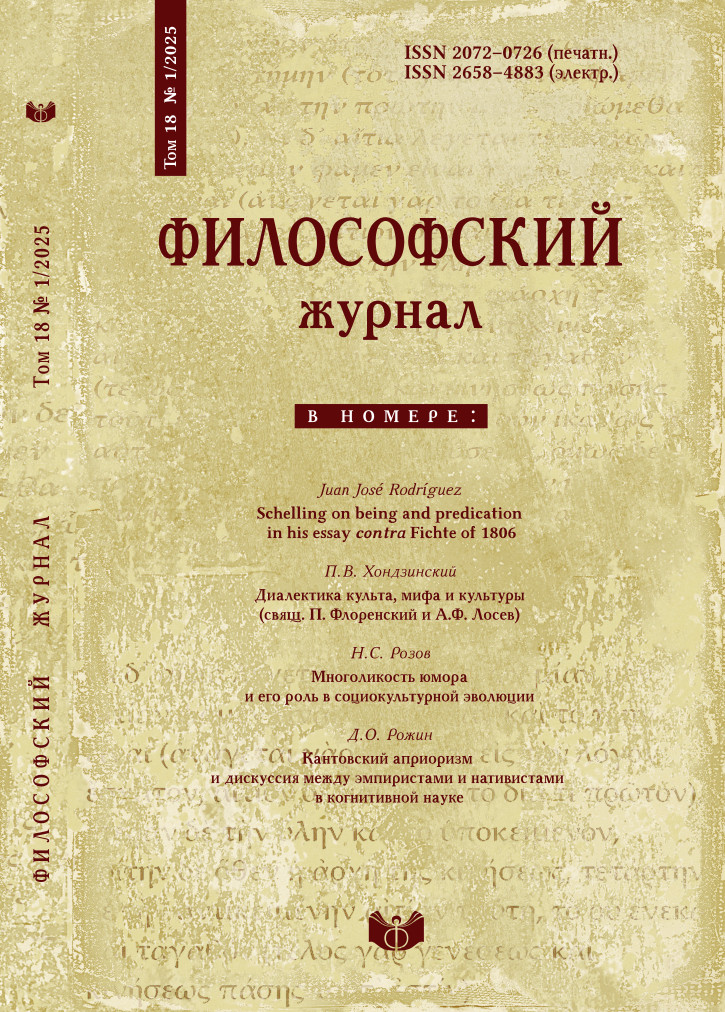The reforms of Alexander II in the focus of K.N. Leont’ev’s philosophical anthropology
To the genesis of his political esoterism
DOI:
https://doi.org/10.21146/2072-0726-2025-18-1-179-191Keywords:
K.N. Leont’ev, philosophical anthropology, Russian platonism, the reforms of Alexander II, political esoterism, class inequality, aristocracy, Eastern ChristianityAbstract
The article examines the period of K.N. Leont’ev’s work in the early 1860s – mid-1870s, which contains diametrically opposed assessments regarding the implementation of Alexander II’s reforms and their cultural-political result. The characteristic influence of these assessments on the formation of Leont’ev’s later philosophy is revealed. The article shows that the change in the philosopher’s views was determined by his ideas about how much cultural benefit or cultural harm emanating from reforms is distributed between their direct beneficiaries and society as a whole. Initially, Leont’ev advocated harmonizing contacts between lower and upper classes in the hope for changing latter’s life, but later abruptly changed his views when he saw that this hope was unfeasible. On the other hand, the article defines the main contradiction that arises when one interprets Leont’ev as a reactionary socio-political observer and educator. The author proves that political esotericism, which is expressed in the socially enforced inequality of knowledge and of which Leont’ev was a supporter by the mid-1870s, actually differs from the understanding of truth that exists within Christianity, which apologist the Russian philosopher tried to be. While truth in Christianity is an eternal Person, Who reveals Himself only to those who are ready to enter into communion with Him, political esotericism is a relativistic tool to preserve knowledge, which is limited by existence of the specific regime. Therefore, it is proclaimed that the success of Leont’ev’s further metaphysical-theological interpretations will depend on the understanding of his interpreters that he had contradictorily aspired to think about history while being in the area of biblical meaning and at the same time to postpone the solution of the original soteriological problem through political and historical means.






